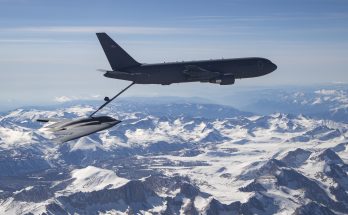
BOAC Mosquito in 1943. Image – BAE SystemsThose with a keen interest in World War Two might have read about Swedish ball-bearing production during the conflict. Surprisingly, Swedish ball bearings are back in the news. The Swedish company SKF (Svenska Kullagerfabriken) found itself on the receiving end of a recent Russian missile strike in Ukraine. The attack took place on the night of August 14-15, killing three employees. History seems to be repeating itself.
Sweden was a neutral country in the Second World War and played a balancing act to maintain that neutrality. Surrounded by an occupied Scandinavia and German-friendly Finland, Sweden deemed it important to appease the Axis and, as the war ground on, the Allies as well. The ramifications of working with both sides is still a hotly debated issue within and outside of Sweden. With that being said, what is with all of these ball bearings?
Well then as now, ball bearings are important components of many systems, civil and military. Tanks, aircraft and numerous other types of equipment utilize ball bearings. SKF, in fact, produced them during the Second World War, with some sources stating that up to 58 percent of German ball bearings were, in fact, from Sweden. However, the Germans were not the only ones to receive them.
In an interesting and often overlooked part of the conflict, the British also purchased Swedish ball bearings. But how? Sweden was surrounded by Axis forces.
The “Ball Bearing Run” was a route flown during the war by de Havilland Mosquitos and other aircraft painted in BOAC livery. These flights, from Scotland to Stockholm, transported VIPs such as Danish physicist Niels Bohr, but also brought ball bearings to the United Kingdom. The flights flew over occupied Norway, with 500,000 tons of freight reportedly being transported over the course of the war.
The recent news that an SKF ball-bearing factory in Ukraine was attacked by Russia brought memories of the dark days of WWII to the foreground. What does this mean for soon-to-be NATO member Sweden?
Russia’s embassy in Sweden defended the plant attack in a statement on August 16, accusing SKF of providing ball bearings to Ukrainian state defense conglomerate Ukroboronprom. The company has said that it makes ball bearings, but “primarily for the heavy civil automotive industry.” Regardless, the attack underscores the extent to which Russian-Swedish foreign relations have declined in the wake of the war in Ukraine.
Moscow’s invasion in February 2022 took Sweden off the sidelines, forcing Stockholm to abandon its long-standing neutrality stance and pursue closer relations with NATO, including, ultimately, joining the Alliance. This move is fast turning the Baltic Sea virtually into a NATO lake, penning in Russia’s Baltic Fleet and further isolating the exclave of Kaliningrad. Moreover, Sweden has provided security assistance to Ukraine since the war broke out, announcing its 13th such package, worth SEK3.4 billion ($311.6 million), the day after the SKF attack.
Earlier in the year, as Sweden and Finland submitted bids to join NATO, Russia’s diplomatic mission in Sweden threatened Stockholm and Helsinki, saying, that “the new members of the hostile bloc will become a legitimate target for Russia’s retaliatory measures, including military ones.” In practice, however, Moscow has limited means to carry out those threats without provoking a wider war with NATO, and thus has used strikes in Ukraine to voice its point instead. This has been the case even with regard to Sweden, despite the fact that its accession to NATO has been a bumpy path owing to initial Turkish opposition. Russia has targeted Ukrainian industry and infrastructure to destroy the country’s economy, but the Kremlin is also seeking ways to demonstrate it can make good on its threats to Western countries as well.
Although it remains to be seen how this will play out, Sweden once again finds itself involved in a conflict not of its choosing. This is not the first time the Swedes have been in this position, and perhaps this is the way it will continue to be. The strategic position of Sweden on the Baltic Sea is a double-edged sword for the Scandinavian country. Its neutrality has long been well-known, but its acceptance into NATO will chart a new path for Svenska folket.





